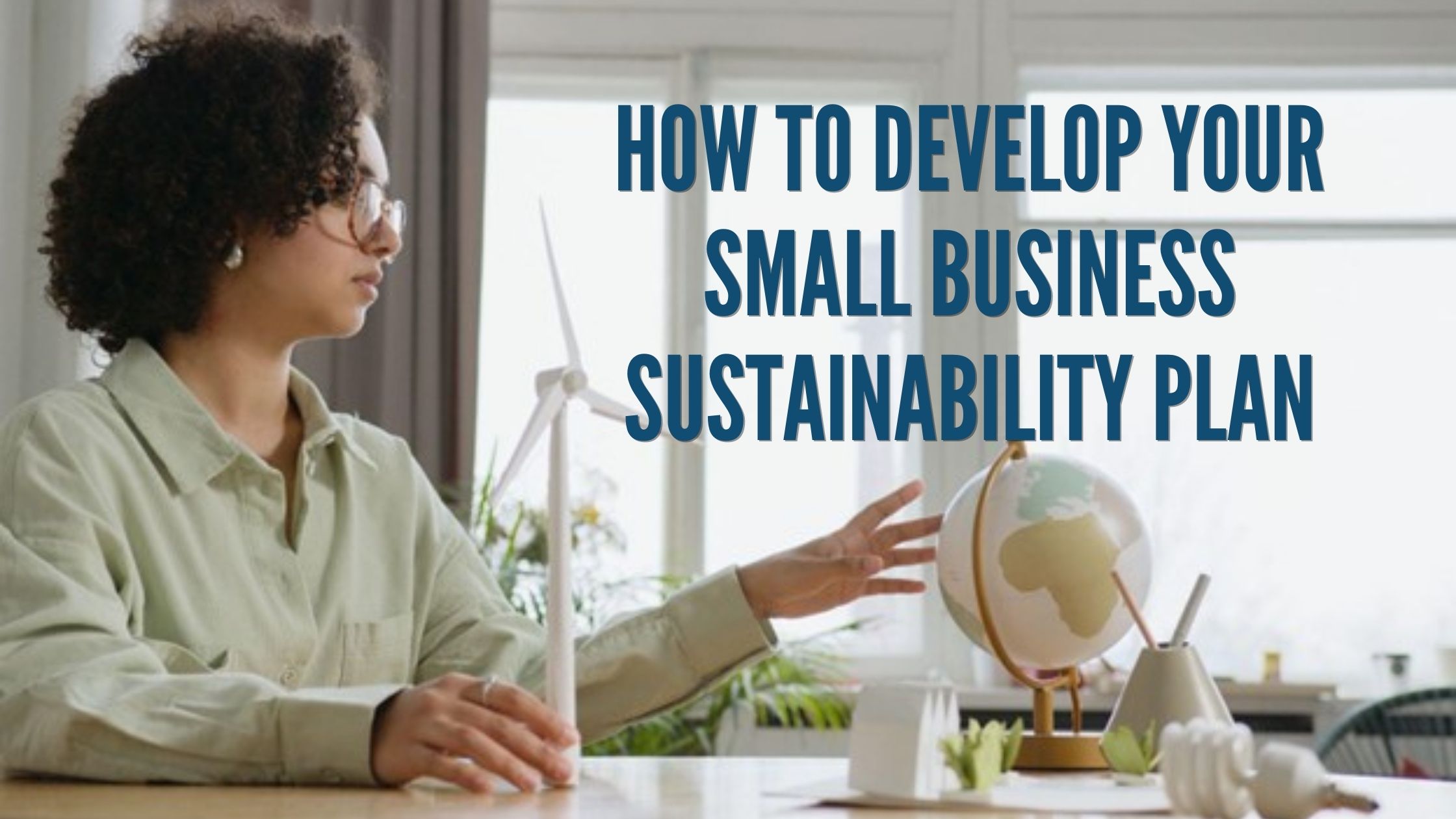


As a prospective small business owner, you have a lot to gain by adopting a sustainability plan. Beyond supporting the environment and reducing your impact on the planet, building sustainability into your new business can improve your bottom line. You'll save costs, improve your brand reputation, and fill the growing need for sustainable products and services.
Eco-conscious consumers aren't going anywhere! Brands that pay attention to consumer demands and care about social responsibility are positioned to come out on top as global environmental concerns grow. While implementing a sustainability plan comes with some initial costs, the investment is well worth it. Here's a guide with everything you need to know about adopting sustainable business practices.
Before you can build a sustainable business, you must understand what it means to be sustainable. Sustainable companies consider not only profits but how business practices and operations affect the rest of the world. In addition, being sustainable means taking steps to reduce your business's negative environmental impacts, preserve resources, and support future generations.
Businesses can enjoy several benefits by pursuing sustainability. For example, you can save a lot of money by reducing your energy usage and waste production. Investing in environmental protection practices can also lower your legal risks and insurance costs. Striving for sustainability can further help to differentiate your brand from your competition and give consumers a reason to choose you over their other options.
You'll also see greater investor interest by adopting a sustainability plan. As people grow more concerned about the environment, increasing numbers of investors want to invest in companies that put people and the planet first. For the same reason, you'll attract talented, highly educated employees who care about the environment and want to work for socially responsible companies.
Once you decide to commit to sustainability, it's time to get your business underway. Don't overthink it! Far too many prospective business owners procrastinate the launch of their business because the steps involved in getting started seem overwhelming and insurmountable. Before launching your business, write out everything you need to do, and start working your way through your checklist, one step at a time.
One of the first things you'll need to do is choose a business structure and register your company. Rather than operating as a sole proprietorship (the default business structure), consider forming an LLC for personal liability protection and tax advantages. It's easy to form an LLC yourself with the help of an online formation service. Just be sure to review your state's specific LLC rules before moving forward.
As you prepare for the launch of your business, look out for sustainability opportunities. Looka suggests starting with your source materials. Are they sourced sustainably, manufactured by ethical suppliers, and made with sustainable materials? Next, consider your packaging options. Choose biodegradable alternatives and single-material designs that are easily recyclable. You'll also have to consider incorporating sustainability into your inventory storage, shipping, and administrative tasks.
Whether you intend to run your business from home, a dedicated office, or a retail space, consider using sustainable energy solutions to reduce your carbon footprint. For example, installing solar lighting systems and solar panels is a great way to reduce your reliance on greenhouse gases. Plus, solar lighting can pay for itself over time, leading to significant long-term savings for your business! Solar lighting works great for parking lots, roadside signs, and business logos. You can even use solar energy to power security equipment like cameras and motion-activated lights.
Make sure your customers know about your sustainability plan so you can reap the rewards of your investment. Designing an attractive logo is one way to let customers know your business is eco-friendly. In addition, your logo will lay the groundwork for the rest of your branding, so think carefully about the imagery, colors, fonts, and messaging you include in your design. Finally, remember that you can use an online logo maker to design a creative logo on your own. Tools like these make it easy to develop your brand assets without hiring a professional designer!
When it comes to advertising your green initiatives, there's a fine line between downplaying your sustainability practices and greenwashing. Greenwashing occurs when brands engage in misleading advertising in an effort to be seen as eco-friendly, despite engaging in environmentally harmful behavior. Earth.org explains that many companies are guilty of greenwashing without knowing it. Instead, educate yourself about sustainability and implement business practices that have a real impact rather than making a superficial effort.
Keep in mind that building a sustainable business requires an investment. So be prepared for additional upfront costs to keep your company green. For example, sustainable products, materials, and manufacturing processes may cost more. The good news is that most consumers are willing to pay more to buy from eco-friendly brands, so you should be able to offset the additional costs by raising your prices.
You also need to be prepared for potential adverse outcomes. If your target audience doesn't necessarily care about sustainability, for example, they may not respond to your advertising or—worse—react negatively to your offers. Making a business sustainable can also be time-consuming. Budget more time for conducting research, networking with suppliers, and educating yourself. Building sustainability into your business plan right from the beginning will help you anticipate and avoid these problems.
Building a sustainable business is a rewarding pursuit if you care about the environment. You can fulfill your dream of being an entrepreneur without feeling guilty about contributing to environmental issues. So as you start planning your new business, think about how you can implement sustainability practices and do your part for our planet.
